Low Carb Bread Secret Weapon Is Sourdough Fermentation
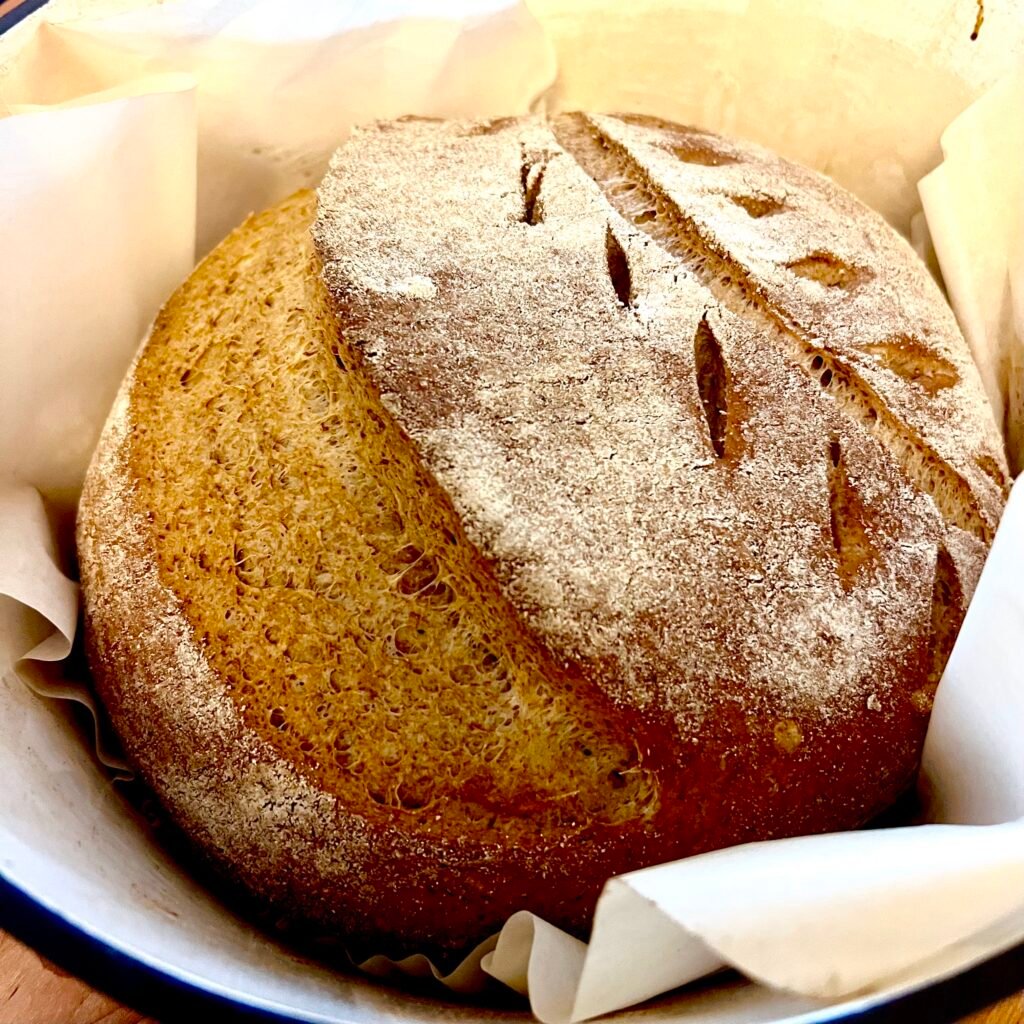
Are you craving the comforting taste and aroma of freshly baked bread, but worried about the carbs? Look no further! Making your own low carb sourdough bread could be the answer you’ve been searching for. It’s about to revolutionize your health journey. In this blog, we’ll explore why crafting this unique bread at home is not just a culinary adventure, but a powerful step towards better health.
From supporting your microbiome to aiding in weight management, low carb bread with sourdough fermentation offers a world of benefits without the guilt. Get ready to discover how this simple yet transformative food can satisfy your bread cravings while aligning perfectly with your wellness goals. Trust me, your taste buds and your body will thank you!
Is Traditional Sourdough Bread Healthy?


The Best of Both Worlds: Low Carb Sourdough Bread:
Low-carb bread made with sourdough fermentation combines the health benefits of traditional sourdough with the advantages of a low-carb diet, creating a nutritional powerhouse that supports overall health and weight management.
Sourdough Culture Benefits:
- Improved Digestibility: The fermentation process breaks down gluten and phytic acid, making the bread easier to digest.
- Enhanced Nutrient Absorption: By reducing phytic acid, sourdough fermentation increases the bioavailability of minerals like iron, zinc, and magnesium.
- Prebiotic Properties: The fermentation process produces compounds that feed beneficial gut bacteria.
- Lower Glycemic Impact: Even in traditional sourdough, the fermentation process reduces the bread’s glycemic index.
High Fiber Content: A Key Advantage:
Unlike traditional sourdough made with refined flour, low-carb sourdough bread is typically made with high-fiber ingredients. This high fiber content:
- Slows down digestion, preventing rapid insulin spikes
- Promotes feelings of fullness, aiding in weight management
- Supports gut health by feeding beneficial bacteria
Low Carb Bread Profile:
With significantly fewer net carbs than traditional bread, low-carb bread with sourdough fermentation fits well into both your keto diet and low carb lifestyle. This low carb bread profile:
- Helps maintain stable blood sugar levels
- Supports the body’s fat-burning processes
- Allows for bread consumption without compromising low carb diet goals
Building a Healthy Microbiome:
The combination of prebiotic fibers and beneficial bacteria from the sourdough culture makes this low carb bread an excellent choice for supporting gut health. A healthy microbiome is linked to:
- Improved digestion
- Enhanced immune function
- Better mood and cognitive function
Weight Management Support:
Low carb bread with sourdough fermentation can be a valuable tool in weight management:
- Its high fiber content promotes satiety, reducing overall calorie intake
- The low-carb profile supports metabolic flexibility and fat burning
- The stable blood sugar response helps prevent cravings and overeating
A Sustainable, Healthy Choice:
By providing the nutritional benefits of sourdough culture in a low carb, high-fiber package, this type of bread offers a sustainable option for those seeking to improve their diet. It allows for the enjoyment of bread without the negative impacts of high carb alternatives, making it easier to stick to a healthy eating plan long-term.
How Does Low Carb Bread with Sourdough Fermentation Become So Healthy?
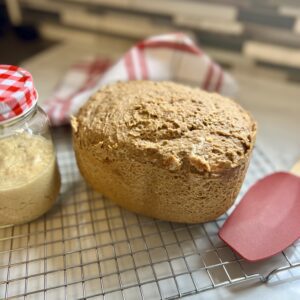
Can Low Carb Bread with Sourdough Fermentation Benefits Help With Weight Loss?

Low carb bread with sourdough fermentation can indeed be a valuable ally in weight loss efforts.
This unique bread offers several mechanisms that support weight management:
- Reduced Calorie Density: By nature of being low in carbohydrates, this bread is generally lower in calories compared to traditional breads. This allows for the enjoyment of bread while maintaining a calorie deficit, which is crucial for weight loss.
- Improved Satiety: The fermentation process enhances the bread’s ability to promote feelings of fullness: a) Increased protein content: Fermentation can slightly increase the bread’s protein content, which is known to be more satiating than carbohydrates. b) Production of bioactive peptides: These compounds, formed during fermentation, may influence hormones that regulate appetite.
- Stabilized Blood Sugar: As discussed earlier, this bread has a lower glycemic impact. Stable blood sugar levels are associated with reduced cravings and better appetite control, making it easier to adhere to a calorie-controlled diet.
- Enhanced Gut Health: The prebiotic compounds produced during fermentation feed beneficial gut bacteria. A healthy gut microbiome is increasingly linked to better weight management through various mechanisms, including: a) Improved metabolism b) Enhanced hormone regulation c) Reduced inflammation
- Increased Nutrient Absorption: The fermentation process increases the bioavailability of nutrients. Better-nourished bodies tend to have fewer cravings and more stable energy levels, supporting adherence to a weight loss plan.
Here are a few more:
- Reduced Insulin Response: Lower insulin spikes, due to the bread’s low-carb nature and fermentation benefits, can help prevent excess fat storage and promote the use of stored fat for energy.
- Improved Digestive Comfort: The pre-digestion of certain compounds during fermentation can lead to easier digestion. This can reduce bloating and discomfort, which some people find helpful for sticking to their dietary goals.
- Psychological Satisfaction: For many, bread is a comfort food. Having a healthier version that aligns with weight loss goals can provide psychological satisfaction, making a weight loss diet feel less restrictive and more sustainable.
- Metabolic Flexibility: Regular consumption of low-carb foods like this bread can help train the body to efficiently switch between burning carbohydrates and fats for fuel, a state known as metabolic flexibility. This can support more effective fat burning.
- Potential Thermogenic Effect: Some research suggests that the organic acids produced in sourdough fermentation might slightly increase the thermic effect of food, meaning you burn more calories digesting it.
It’s important to note that while low carb sourdough bread can be a helpful tool for weight loss, it’s not a magic solution. It should be part of a balanced, calorie-controlled diet combined with regular physical activity for optimal results.
Moreover, the portion size remains crucial. Even though it’s low in carbs, overconsumption can still hinder weight loss efforts. When incorporated mindfully into a well-planned diet, however, this bread can provide nutritional benefits, satisfaction, and support for sustainable weight loss.
Lastly, the fermentation process and low-carb nature of this bread make it particularly beneficial when used as a replacement for higher-carb, non-fermented breads in the diet. This substitution can lead to an overall reduction in calorie and carbohydrate intake, supporting weight loss goals while still allowing for the enjoyment of bread-like foods.
Does Low Carb Sourdough Bread Taste Like Traditional Sourdough?
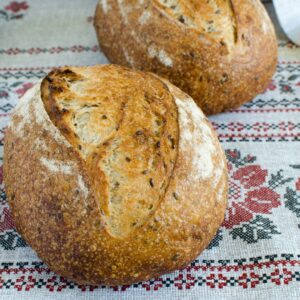
This question posses a more complex answer than just yes or no.
Here are some points to consider:
The Unique Flavor of Low Carb Sourdough:
Low carb bread made with sourdough fermentation offers a delightful twist on traditional sourdough. Since it utilizes alternative ingredients, the taste differs significantly from the classic version made with baking or all-purpose white flour. The specific type of low carb sourdough you choose to bake will also influence its flavor profile. Generally, low carb sourdough is denser, with a smaller crumb, yet boasts a beautifully crusty exterior and a chewy interior.
The Tangy Factor:
One of the most exciting aspects of sourdough is its tanginess, which can be adjusted based on the length of the preferment. The longer you allow the dough to ferment, the more pronounced the tangy flavor will be, creating a truly unique experience with each loaf!
A Low Carb Delight for Your Diet:
For those following a low carb diet or lifestyle, the idea of savoring a slice of low carb sourdough bread with your meal or enjoying a piece of toast with eggs in the morning is simply mouthwatering! It’s essential to note that low carb sourdough cannot be directly compared to traditional sourdough any more than you can compare traditional pizza crust to a fathead pizza crust.
Health Over Cravings:
When your health takes precedence over fleeting cravings, you’ll come to cherish low carb sourdough bread. Not only is it delicious, but it’s also a much healthier option for your body. If you’re someone who enjoys regular workouts, you’ll particularly appreciate this bread. Low carb sourdough supports gut health, reduces inflammation, enhances hormone regulation, boosts metabolism, and contributes to overall heart, brain, and body wellness.
What Are Other Sourdough Low Carb Bread Blogs You Might Enjoy?
Here are a few:
LOW CARB BREAD’S SECRET WEAPON WITH SOURDOUGH FERMENTATION
SOURDOUGH LOW CARB BREAD AS A HOLIDAY GIFT OPTION
10 LITTLE KNOWN FACTS ABOUT SOURDOUGH LOW CARB BREAD
SOURDOUGH LOW CARB BREAD AS BODYBUILDING SECRET WEAPON
SOURDOUGH LOW CARB BREAD AS A PROBIOTIC POWERHOUSE
10 SOURDOUGH LOW CARB BREADS PAIRED WITH NON ALCOHOLIC WINES
SOURDOUGH LOW CARB BREAD & HOW BIFIDOBACTERIA BOOST YOUR HEALTH
FYI: SOURDOUGH MEDICAL STUDIES AND REVIEWS:
Here they are:
- Does Sourdough Bread Provide Clinically Relevant Health Benefits?: Link: https://pmc.ncbi.nlm.nih.gov/articles/PMC10399781/
- The Sourdough Microbiome : Link: https://asm.org/articles/2020/june/the-sourdough-microbiome
- Sourdough Microbiome Comparison and Benefits: Link: https://pmc.ncbi.nlm.nih.gov/articles/PMC8306212/
- Nutritional Benefits of Sourdough; Systematic Review : Link: https://pubmed.ncbi.nlm.nih.gov/36811591/
- Use of sourdough in low FODMAP baking : Link: https://pubmed.ncbi.nlm.nih.gov/29932101/
Disclaimer:
All information provided on this website regarding the health benefits of sourdough low carb bread is intended for educational purposes only. The content presented is not meant to be taken as specific medical advice for any individual. It should not be considered a replacement for professional medical guidance or treatment. If you have any health concerns, especially related to diabetes, pre-diabetes, or any other medical condition, please consult with a healthcare professional immediately.
🔥 UNLOCK MORE RECIPES STARTER + MEMBERSHIP – Only $99 CAD! 🔥
Get a second starter with your membership – the exclusive membership recipes use 2 different low-carb feedings to bake the 3 different styles of breads and baked goods (weight loss, low-carb lifestyle maintenance, fast and easy discard recipes) that will transform your baking game beyond what your current starter can achieve!
💰 PRICING: Regular Price: $198 CAD Today Only: $99 CAD (Only $99 CAD!)
SINLESSSOURDOUGH.COM
Click the Starter + Membership Box
Your Discounted Membership Includes:
🥖 1849 San Francisco Gold Rush Dehydrated Starter: Scientifically validated starter shipped free to your door!
📦 FREE Shipping: Your starter ships to you at no extra cost
🎥 25+ Instructional Video Trainings: Master Keto & Low-Carb Sourdough Baking with comprehensive video lessons
📚 3 E-Sinless Sourdough Cookbooks: Easy-to-follow sourdough recipes for your low-carb lifestyle
📖 3 E-Keto Low-Carb Cookbooks: Delicious low-carb recipes to complement your baking
🗓️ E-28-Day Keto Kickstarter Journal & Planner: Stay on track with your low-carb journey
📝 Keto Low-Carb E-Cheat Sheets & Quick Guides: Shortcuts for perfect baking every time
🍞 Training for 3 Styles of Keto & Low-Carb Sourdough: Learn recipes for weight loss, lifestyle maintenance, and easy discard recipes
💬 Exclusive Community Access: Share tips, ask questions, and get expert support from fellow bakers
🚀 DON’T MISS OUT – GRAB IT FOR Only $99 CAD NOW! 🚀
Transform Your Baking Today:
- Visit sinlesssourdough.com™
- Click “Starter + Membership”
- Proceed to the purchase page
- Enter code: SINLESS50
- Complete checkout and START BAKING guilt-free sourdough immediately!
SINLESSSOURDOUGH.COM
Click the Starter + Membership Box
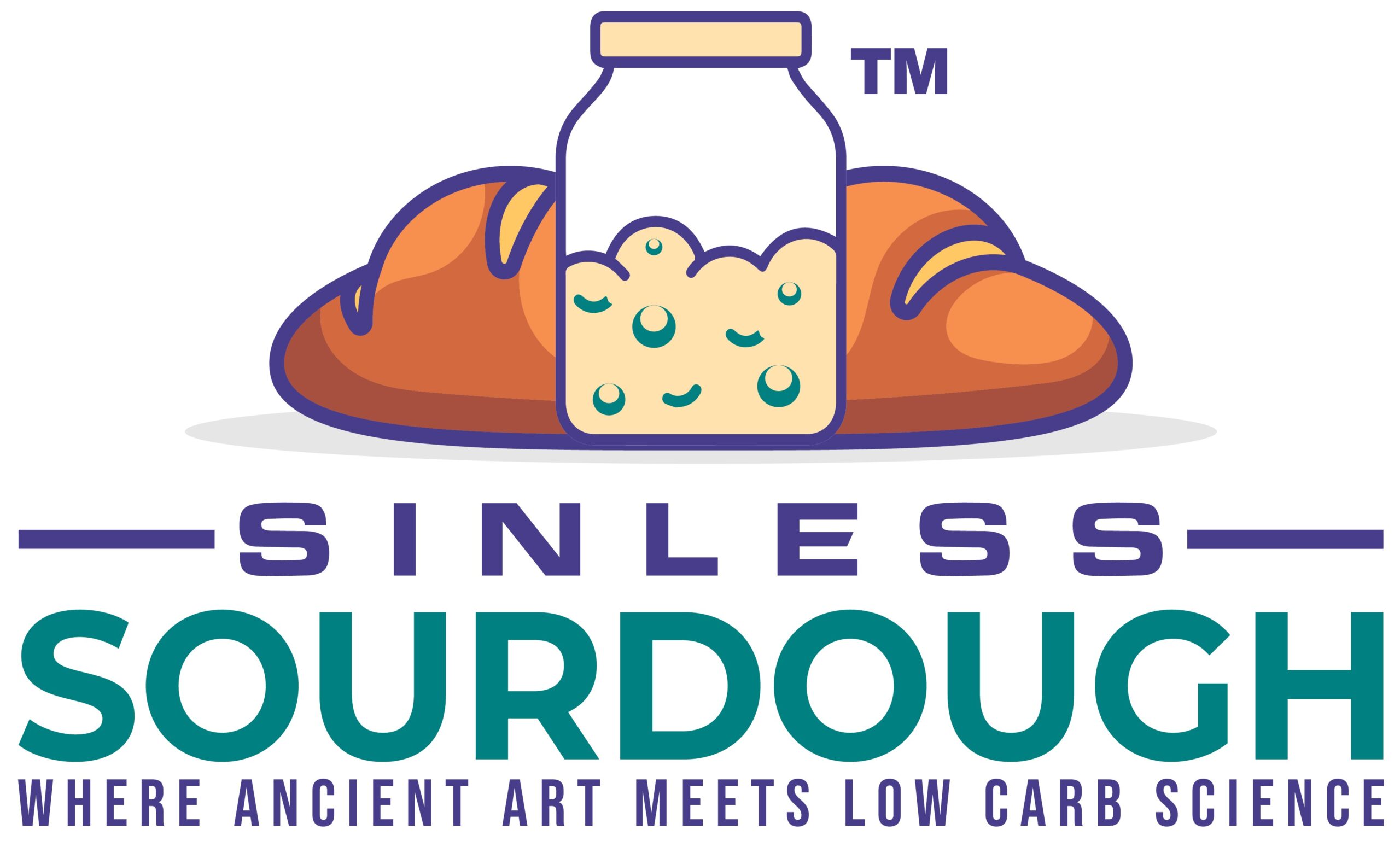
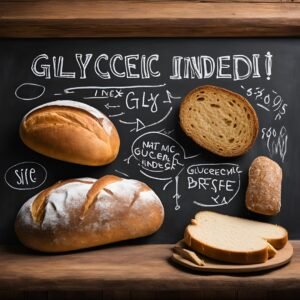




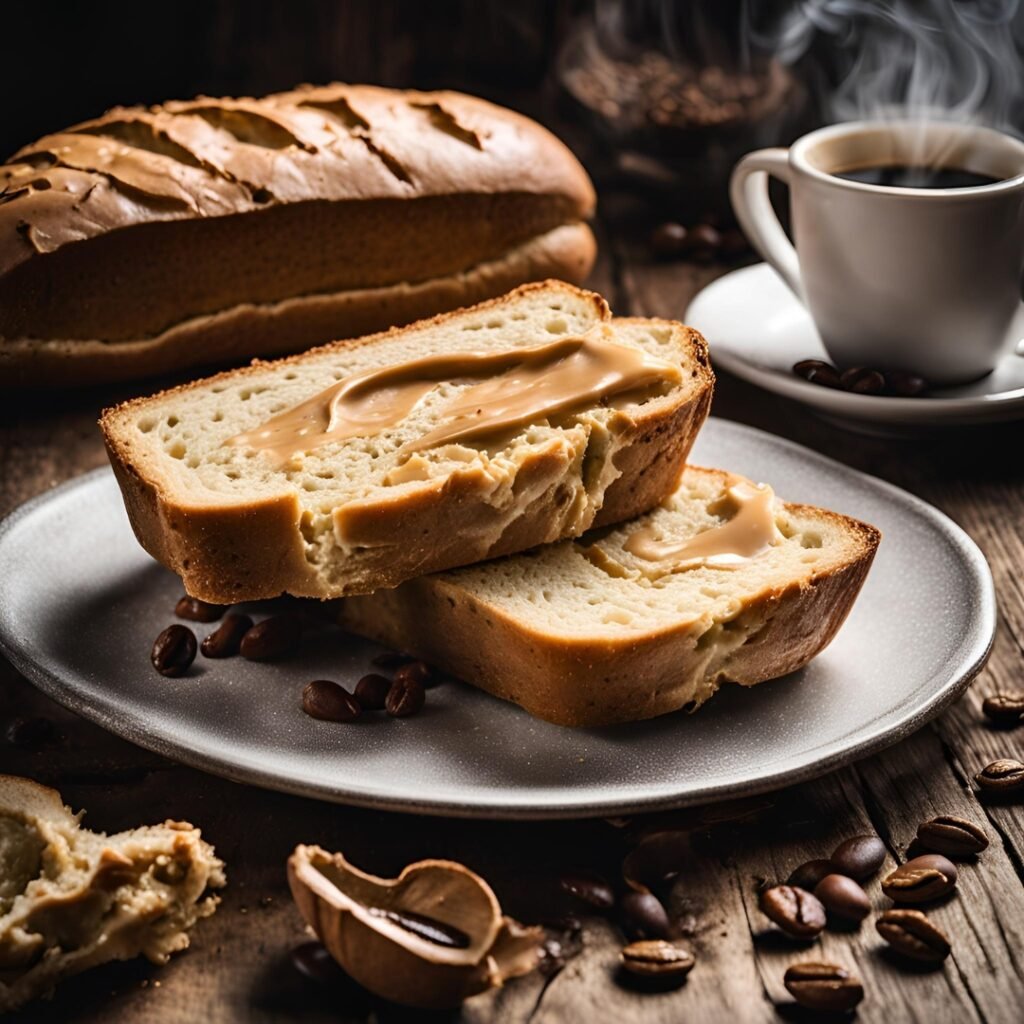
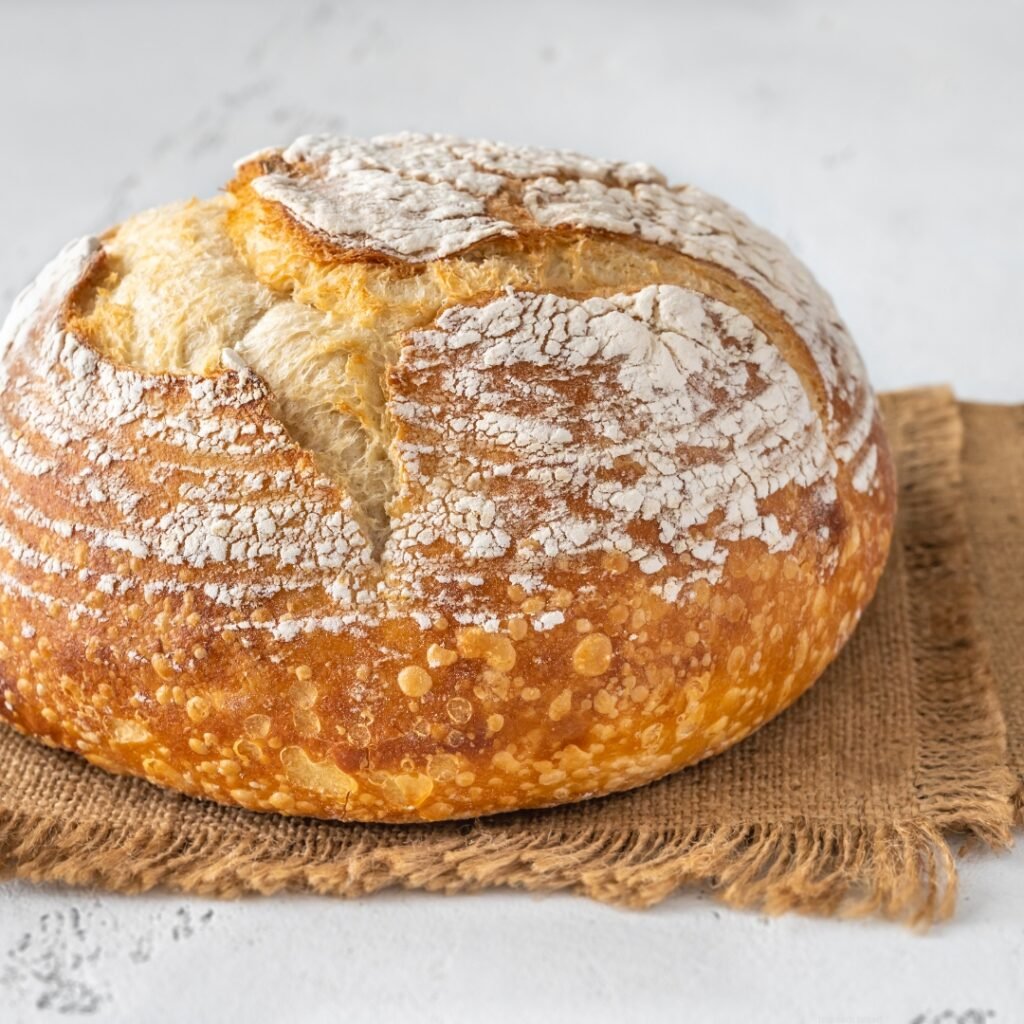

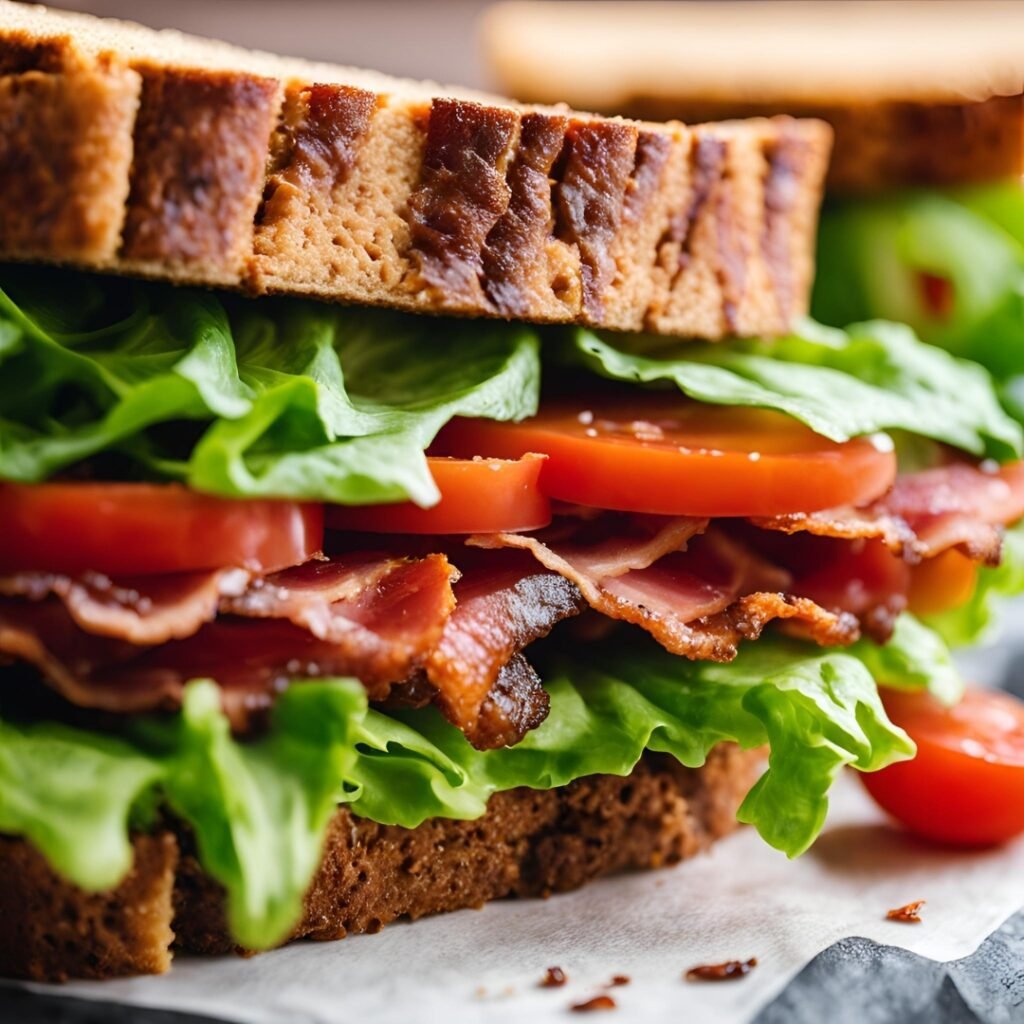

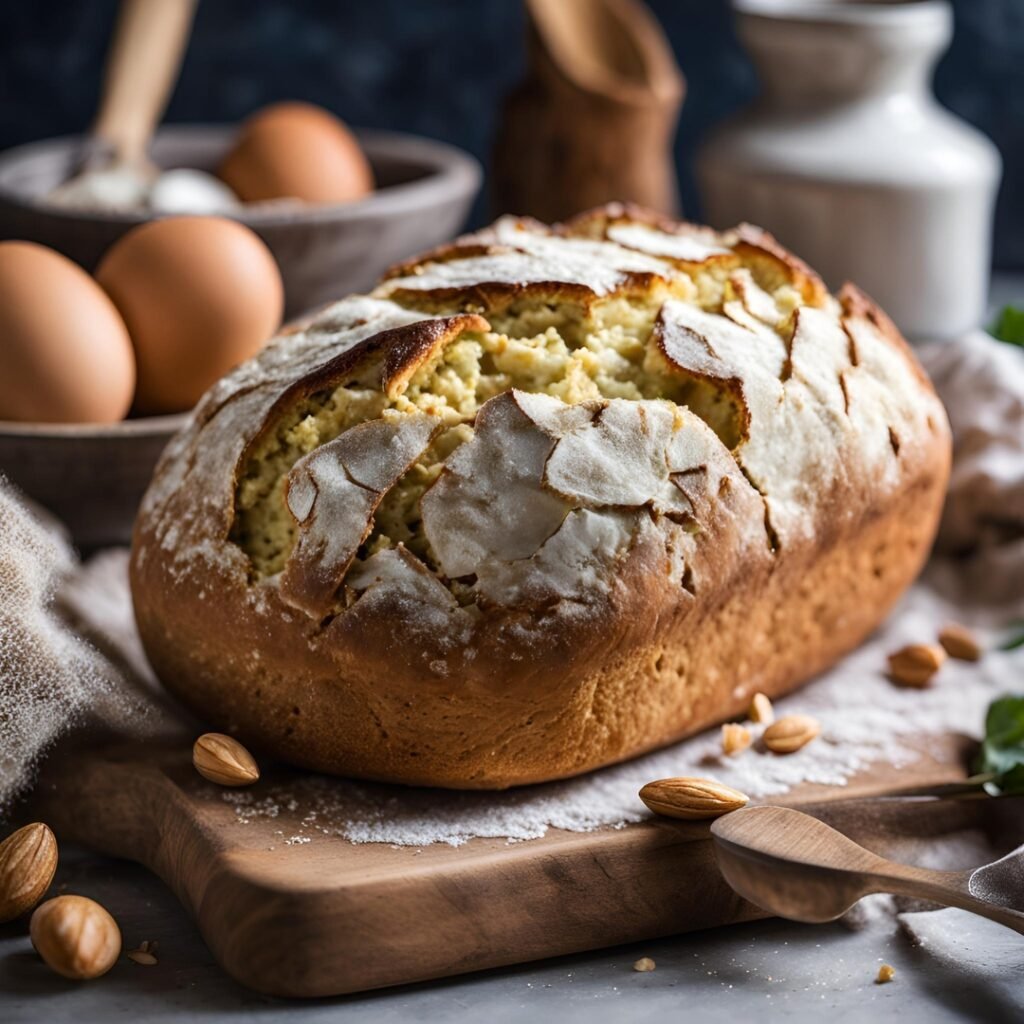
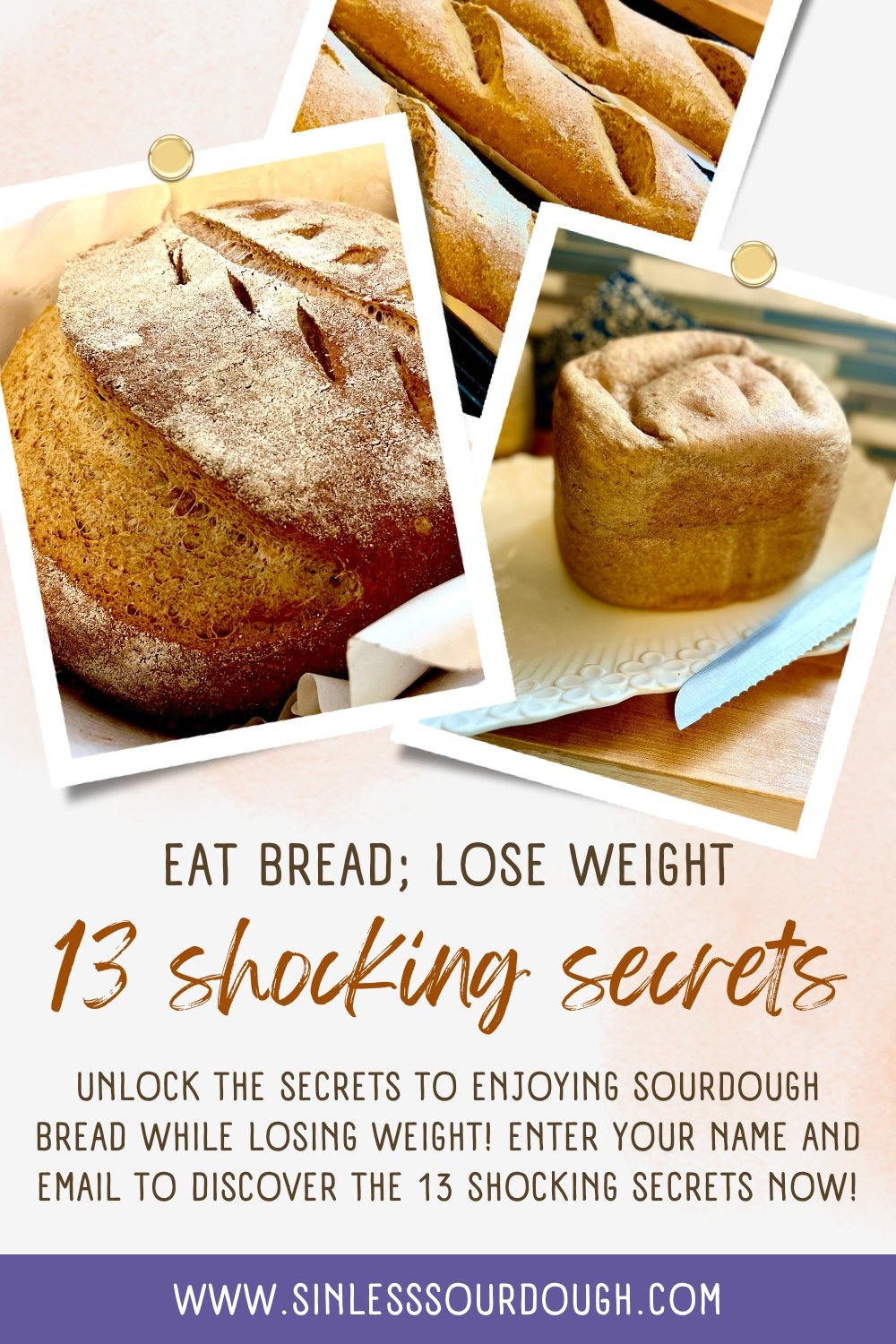
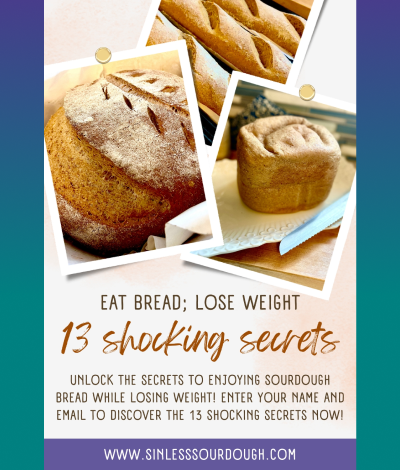
Responses